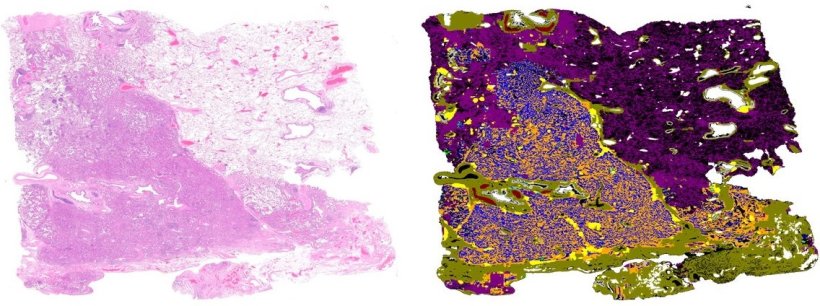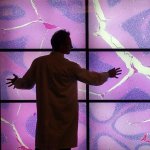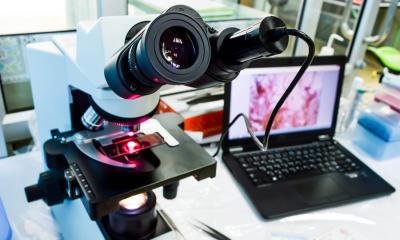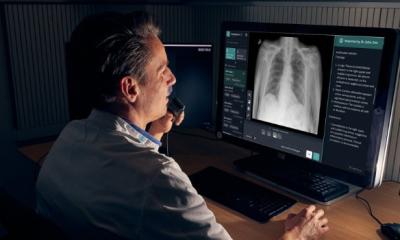
Image source: University of Cologne/Dr. Yuri Tolkach
News • Automated tissue analysis
Digital pathology: AI platform to improve lung cancer diagnosis
A team of researchers from the University of Cologne’s Faculty of Medicine and University Hospital Cologne, led by Dr Yuri Tolkach and Professor Dr Reinhard Büttner, has created a digital pathology platform based on artificial intelligence.
The platform uses new algorithms developed by the team and enables fully automated analysis of tissue sections from lung cancer patients. The platform makes it possible to analyse digitized tissue samples on the computer for lung tumours more quickly and accurately than before. The study has been published in the journal Cell Reports Medicine.
Recommended article

Article • In-depth
Focus on digital pathology
Digital pathology opens up a whole new world of possibilities in diagnosis, prognosis, and prediction of diseases. Keep up-to-date with the latest research news, medical applications, and background information on digital pathology.
Lung cancer is one of the most common tumours/cancers in humans and has a very high mortality rate. Today, the choice of treatment for patients with lung cancer is determined by pathological examination. Pathologists can also identify molecularly specific genetic changes that allow for personalized therapy. Over the past few years, pathology has undergone a digital transformation. As a result, microscopes are no longer needed. Typical tissue sections are digitized and then analysed on a computer screen. Digitalization is crucial for the application of advanced analytical methods based on artificial intelligence. By using artificial intelligence, additional information about the cancer can be extracted from pathological tissue sections – something that would not be possible without AI technology.
“We also show how the platform could be used to develop new clinical tools. The new tools can not only improve the quality of diagnosis, but also provide new types of information about the patient’s disease, such as how the patient is responding to treatment,” explained physician Dr Yuri Tolkach from the Institute of General Pathology and Pathological Anatomy at University Hospital Cologne, who led the study.
In order to prove the broad applicability of the platform, the research team will conduct a validation study together with five pathological institutes in Germany, Austria and Japan.
Source: University of Cologne
25.08.2024





